The Northern Ireland women footballers who made history 50 years ago
- Published
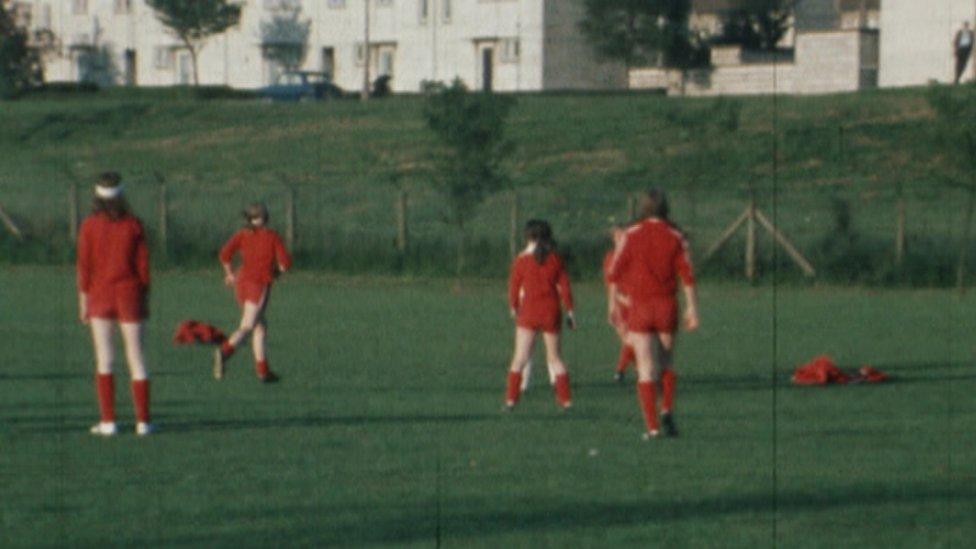
The squad taking on the Republic of Ireland in 1973 was made up of 15 players, seen training here
"We were pioneers and it's amazing to be one of those pioneers."
This weekend marks 50 years since Alison Bennington and her teammates made history as the first Northern Ireland women's football team to play an international match.
She said it's come a long way, but there's still work to be done in promoting the game here.
The squad taking on the Republic of Ireland in 1973 was made up of 15 players.
Seven of them came from the Mayfair clothing factory team in Portadown - a fact that earned them the nickname the "Petticoat International Panel" from one local paper.
"We were sometimes laughed at when people were watching us play. The game has progressed so much," Alison, now a DUP councillor, said.
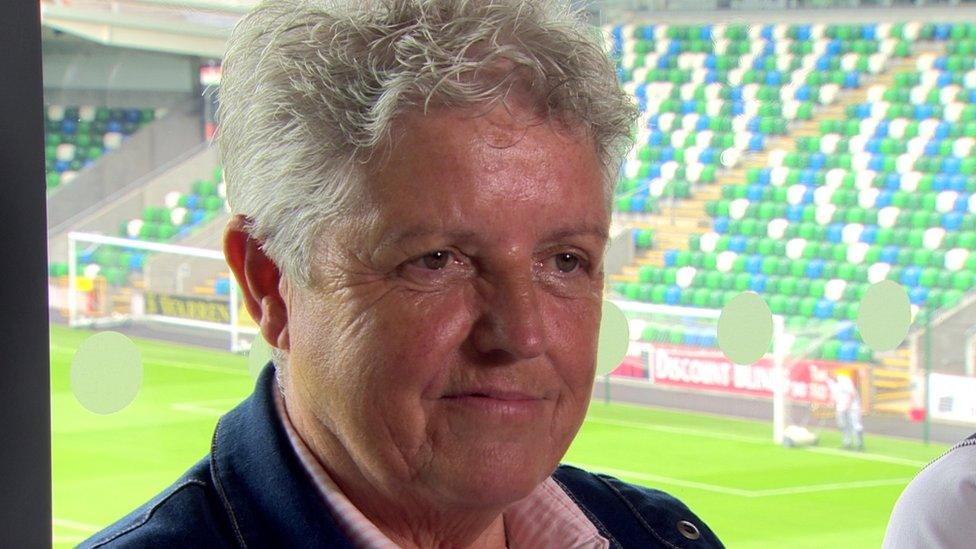
Alison Bennington said she was proud to be one of the pioneers of women's football in Northern Ireland
"I wasn't allowed to play football with the boys in primary school or secondary school.
"I was one of two or three girls in my housing estate who played, but thankfully time has moved on and children have a better opportunity for football development from a young age".
Despite the intervening decades, former Northern Ireland International and IFA Elite Youth Academy manager Dannielle McDowell Tuffey said it's not all that different for players now.
They no longer have to pay for their own kit, but she believes the "pride, passion, fun and enjoyment" that the current crop of players have for the game is as strong now as it was five decades ago.
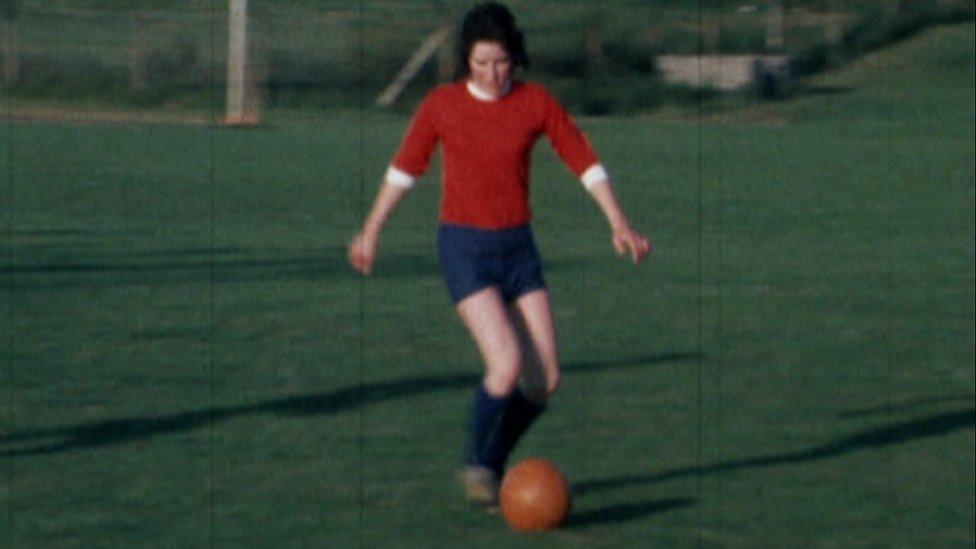
Alison was a midfielder back in the day
That first game may have changed the lives of the women and girls involved but the wider impact would not be felt for several years.
The only footage that remains are interviews conducted by broadcaster Gloria Hunniford, external for the BBC's Scene Around Six.
There are no reams of video showing the iconic moment they stepped on to the pitch in Dublin, photographs of the players, or even time-worn caps stitched with the date and location - those came much later, in 2021. And the players who followed in their footsteps didn't have the chance to idolise the women who came before them.
When she was growing up as a young footballer, Danielle said she knew nothing of the women who changed the game.
"It's not because they weren't there, it's because I didn't know about it. It just wasn't visible," she said.
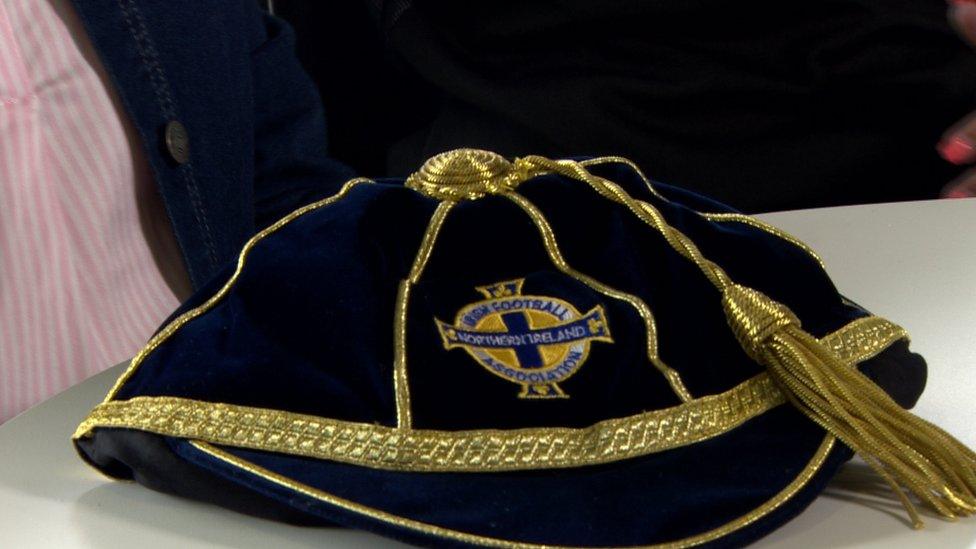
She went on to win 24 Northern Ireland caps
"I had male role models that I looked up to. I didn't have a female coach until I was well into adulthood. But now young girls have women in all sports that they can look up to."
Decades later, players like Danielle are still reaching milestones.
Last summer saw the Northern Ireland squad compete in their first major tournament when the Green and White Army took over Southampton for the Euros.
It's the same competition that saw forward Simone Magill enter the record books for the fastest international goal in women's football - scored just 11 seconds after kick-off in their qualifier against Georgia in 2016.
Danielle said the 1973 squad built the foundation for both her and the current squad to succeed.
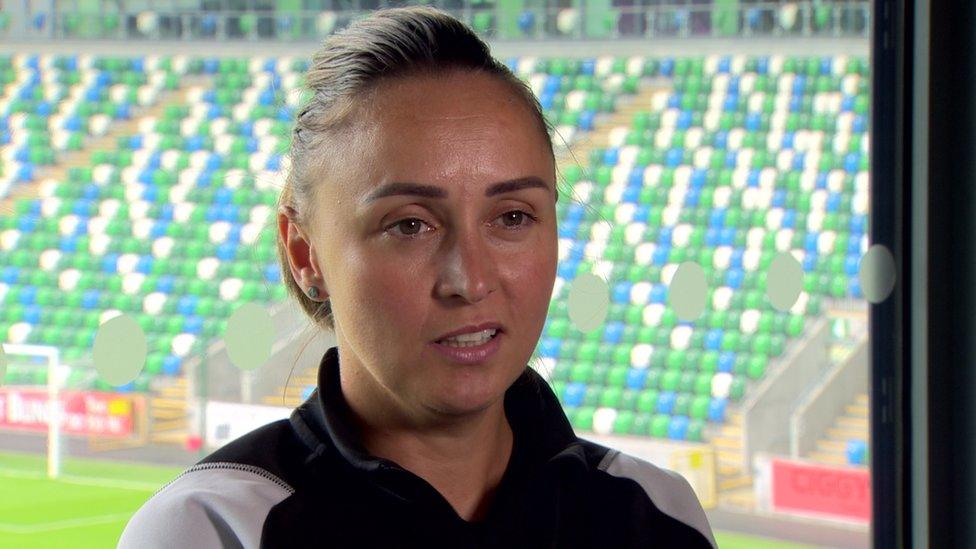
Dannielle McDowell Tuffey says she is grateful for what the 1973 team did
"I'm so thankful and grateful for everything those players did," she said.
"They're role models. They opened doors and broke down barriers to give me the opportunities that I've had in my career."
What of the next 50 years?
Danielle said she strives towards "normality" for other women and girls taking up the sport.
"I want to reach a point where women's sport is on the front page of newspapers and it's not unusual, where it's normal for female coaches to be working in the Irish League and Premier League," she said.
"We need to give all young girls the opportunity to fulfil their potential, whether that's pro-football or the grassroots league. As long as there's participation, that's development."